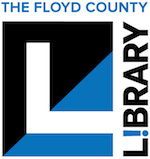Every year International Literacy Day is celebrated on September 8. We celebrate this day to bring awareness of the literacy problems in our local communities, as well as all around the world. The holiday began in 1966 “to remind the public of the importance of literacy as a matter of dignity and human rights” (The United Nations Educational, Scientific and Cultural Organization). Literacy is important no matter how old you are, and the public library is here to help.
To really understand the impact of International Literacy Day, here are some statistics:
- >40% of American third graders read on a third grade level.
- 75% of children who struggle to read their entire lives will find it hard to catch up if they fall behind at age 9.
- 25% of boys have some level of dyslexia, which can lead to literacy problems.
- 20% of students suffer from learning differences.
- 33% of America’s struggling readers are in college educated families.
- 90% of the world’s male population is literate.
- 82.7% of the world’s female population is literate.
- The country of Andorra is ranked #1 for having the highest literacy rate in the world.
Here in The Floyd County Library Children’s Department, we focus on early literacy. Children’s librarians plan and conduct story times and other literacy programming for all ages!
Here is a calendar of our scheduled story times at The Floyd County Library:
- Toddler Time – Mondays at 10:00 a.m.
- Sensory Friendly Story Time – Mondays at 2:00 p.m.
- Babies and Books – Tuesdays at 10:00 a.m.
- Evening Storytime for Families – Tuesdays at 6:00 p.m.
These story times consist of Every Child Ready to Read principles that include – Reading, Writing, Singing, Talking, and Playing. Using these principles helps children be prepared for Kindergarten when the time comes.
Children learn about the construction of a book, known as print awareness. They learn about the title page, how words are displayed on a page, and how words are read from left to right. The print in a book represents words with meaning to them. There is a beginning, middle, and end.
Letter knowledge is also important, so singing the ABCs is an easy way to help prepare your child to read. Other fun ways to learn the alphabet is through refrigerator magnets, pointing out letters in a book you’re reading, using building blocks with the letters on them, and making upper case and lower case letters from playdough. This will allow your child to begin to recognize what a letter looks like and how to sound it out.
Singing helps with phonological awareness. Phonological awareness sounds scary, but it is just how you hear and identify sounds. Using nursery rhymes and movement activities help with learning sounds. Songs slow down the sounds so the child can hear them better.
Some parents are concerned about how much their children move around in a story time. However, most of the time the child is still listening. Listening comprehension is important while trying to learn to read. When you understand what you hear, you learn more about the world around you. Learning never stops! Read books to your child about topics they are interested in. Once they get into a routine of reading, that love will most likely continue into adulthood.
Literacy helps with brain health. If you set aside 20-30 minutes each day to read, you are helping your brain cells grow and be less likely to develop Alzheimer’s and dementia. We have so many books for you to check out and read, even audiobooks! So, stop by the library today and check out your next book on International Literacy Day.
Happy Reading!
